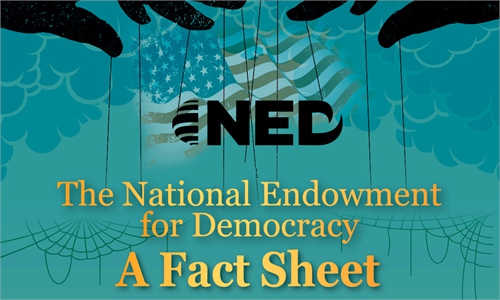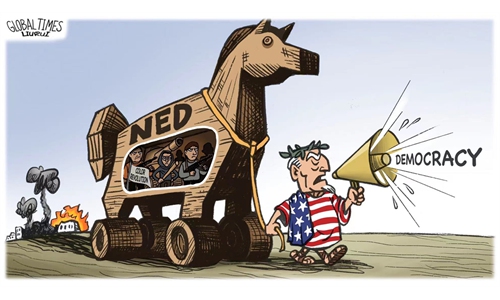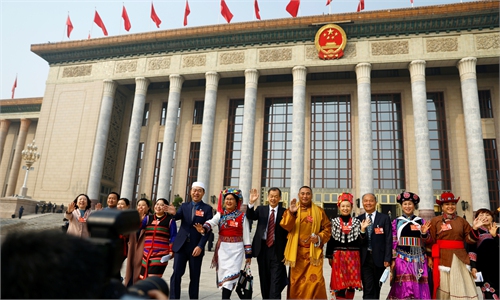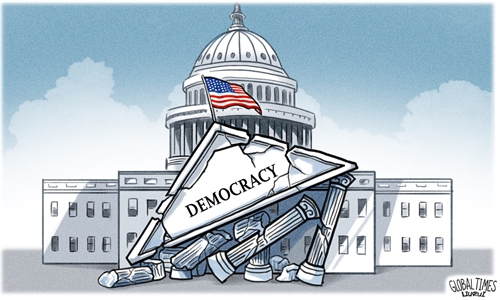Survey shows most Americans believe US not a democracy, reflects 'discourse woven by elites far out of touch with people's feelings'
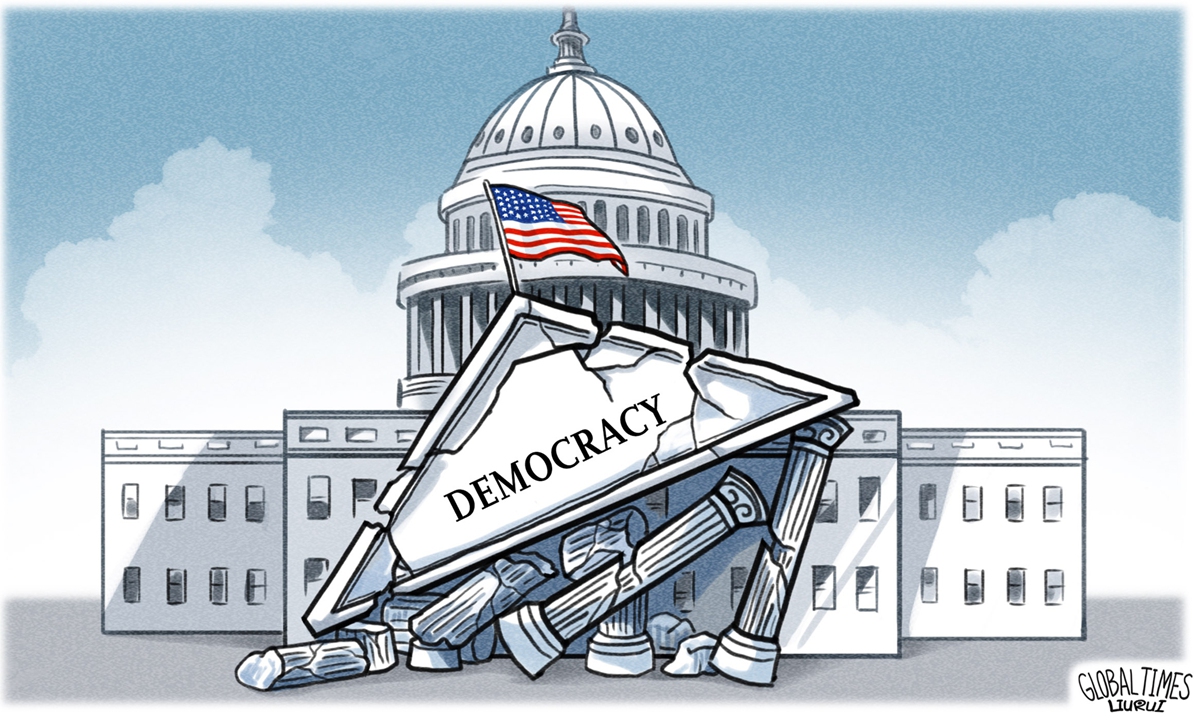
Illustration: Liu Rui/GT
A new survey showed that the overwhelming majority of people in China said they live in a democracy while most people in the US said they are not, with China at the top of the list where people believe their country is democratic.
The survey, published by the Denmark-based Alliance of Democracies Foundation and the Germany-based Latana data tracking firm, explores public opinions about democracy among 52,785 respondents across 53 nations and regions, between March 30 and May 10.
When asked whether they believe their country is democratic, China topped the list with 83 percent of respondents saying China is a democracy. But in the US, a country which has been touting itself as the global beacon of democracy, only 49 percent said the country is a democracy.
On the question on the perception of "not enough democracy," the highest score is in Latin America with 58 percent, followed by Europe with 41 percent, and the lowest in Asia with 29 percent.
Across the 53 countries surveyed, an average of 49 percent of people say that their government mainly serves the interest of a minority, even in democracies. This sentiment is most prevalent in the Latin American countries surveyed (66 percent), the US (63 percent) and Europe (51 percent), and least prevalent in Asian countries (33 percent), particularly China (7 percent).
The past two years have put democracy to the test in the US but Americans have not lost faith in its importance, and they increasingly feel that there is not enough democracy in their country and that the government mainly acts in the interest of a small group of people, the report said.
Out of all "free" democracies surveyed in 2022, 32 percent of Americans say they do not have free speech , 31 percent say they do not have fair elections and 42 percent believe they do not have equal rights.
The report also showed a growing number of Americans believe that their government mainly acts in the interest of a minority, from 52 percent in 2020 to 63 percent this year.
The survey reflects the true understanding of democracy of the Chinese people in the light of their own experience and national conditions, a Beijing-based international affairs expert told the Global Times on Tuesday, noting that the quality of China's democracy should not be defined by Western standards or politicians, but by the people who live in China.
The low evaluation of China's democracy in the US-led western world stems from the long-standing demonization of China-related issues by US politicians, media and the brainwashed public, the expert noted.
The dichotomy of so-called dictatorship to democracy adopted by the Western world has been constantly inculcated at home and amplified around the world, and it is obvious that these people have no experience of whether China is democratic or not in the Chinese context, but only a biased understanding and recognition of China in a Western discourse system held by Western public opinion, he said.
Experts also point out that public discontent in the US reflects the real quality of its democracy and that the US' vision of itself as a beacon of global democracy is just rhetoric and a discourse woven by the ruling elites which is far out of touch with the feelings of its own people.
In the latest example, the deadly shooting at an elementary school in Texas which left 21 dead has shocked the US and the world. It was the deadliest shooting at a US elementary school since the attack at Sandy Hook Elementary School in 2012 and it came just 10 days after the mass shooting in Buffalo, New York, that claimed 10 lives.
The growing numbers of mass shootings in the US are turning the country into the most dangerous place in the world and raise doubts about a failing political system making any changes. The persistent failure to change has been amplified by the COVID-19 pandemic.
In December 2021, China released a report on US democracy, exposing the deficiencies and abuse of democracy in the country as well as the harm of exporting such democratic model.
The report notes that the US system is fraught with deep-seated problems and its democracy has become "a game of money politics." The US holds the principle of "one person one vote" in name, but in reality it is the "rule of the minority elite." The checks and balances have resulted in a "vetocracy," and the flawed electoral rules have impaired fairness and justice, and the dysfunctional democracy has triggered a trust crisis.

